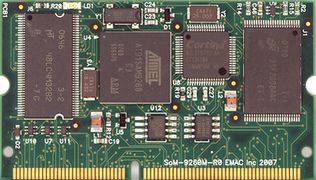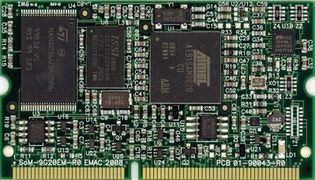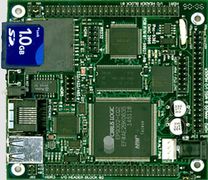Example atod
This is a guide to the atod_test C example project included in the EMAC OE SDK.
This application reads all channels of an indexed atod device on EMAC OE Linux. Examples of this type of device are the processor AtoDs on the SoM-9260/9G20 and the IPAC-9302; and the mcp3208 external AtoD devices on the SoM-150ES carrier (see hardware requirements, below).
The atod_test project builds one executable: indexed_atod_test.
Contents
Opening, Building and Uploading the Project Files
1. Open the C/C++ editing perspective.
stub
2. Open the project files.
stub
3. Build the project.
stub
4. Upload the executables to the target system.
stub
Usage and Behavior
Hardware Requirements
The atod_test project requires a device with indexed atod functionality, ie: A SoM-9260, a SoM-9G20 or an IPAC-9302.
You can also use a SoM-150ES carrier (using the mcp3208 external AtoD device through /dev/mcp3208-gpio. (This interface uses the EMAC ioex class to provide a GPIO-like device where each channel can be read directly.(see also the egpc project)).
Using atod_test
indexed_atod_test DEVICE CHANNELS
Where DEVICE is the path to the device to read and CHANNELS is the number of channels to read.
Usage Example
<syntaxhighlight lang="text"> root@som9g20:/tmp# ./indexed_atod_test /dev/indexed_atod 4 [0] = 19 [1] = 76 [2] = 18 [3] = 22 <syntaxhighlight>


